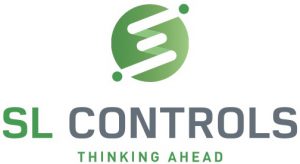Overview

NEXT AVAILABLE COURSE: June 2025| PRICE: €1,550 per candidate
The purpose of this module is to build on the knowledge and skills gained in the Electrical Safety, Circuitry and Troubleshooting module, by providing learners with the opportunity of working with pre-wired machine systems and using a meter at higher voltages (up to 230VAC). These systems model workplace technologies and are supported by industry standard schematics and documentation.
Who should attend the QQI Level 6 Electrical Troubleshooting of Machine Systems :
The Electrical Safety, Circuitry and Troubleshooting module is a prerequsite for this course.
Why Should I attend?
The overall aim of the Electrical Troubleshooting of Machine Systems module is that learners can safely fault-find on industrial automation equipment (including 3-phase motor and inverted controlled equipment). This will enable them to contribute valuable productivity improvements to their employers by safely diagnosing down-time issues on automated industrial systems as well as suggesting modification and improvements to enhance productivity. Industry is increasingly looking for multi-skilled technical staff and this course will enable non-craft electrical personnel to contribute to efficiency by understanding and diagnosing problems that can involve electrical sub-systems. Learners will not be expected to install electrical equipment (which requires them to be registered electrical contractors) but rather just work safely when troubleshooting around existing systems providing visual diagnosis, meter readings, resets and like-for-like replacements which require isolation of hazardous energies.
Learning Experience
In order to repeat and embed the safety message and remind learners of the dangers of doing physical work on or near live equipment, simulators are initially used, and learner behaviour is tracked by the module instructor, correcting any safety failures made on the simulators. Utilising a practical learning style, this module includes a universal troubleshooting, logical thinking approach to autonomous fault-finding, while keeping safety at the forefront. Learners will progress by yielding repeated success by applying the methodology to real (simulated) faults on equipment.
Course Objectives
And the end of the course learners will be able to:
- Demonstrate a structured and logical approach when fault-finding DC controlled, AC powered and various 3- phase powered machine systems.
- Demonstrate safe work practices around live electrical conductors
- Demonstrate an isolation strategy for parts replacement and how to isolate equipment and verify it is safe to work on
- Demonstrate competent application of a multi-meter and insulation tester as diagnostic tools, including standardised testing of 3-phase induction motors.
- Interrogate and navigate electrical schematics to assist in fault-finding.
- Explain the operating principles, specification parameters and different wiring configurations for 3-phase motor systems.
- Demonstrate competent performance of maintenance and diagnostic duties using frequency inverters.
Course Modules
The Troubleshooting method: What You’ll Learn
- Demonstrate the power of the 1 fault assumption in eliminating large sub-system areas
that don’t need to be tested. - Demonstrate the binary elimination method including trunk or branch, inside or
outside, before or after, sensor or actuator, distinctive evidence or no evidence, current
step transition or next step action. - Demonstrate using Simutech simulation software on three faults, solve as a group. Introduce discipline of
pen and paper to record stages: Pertinent Evidence, Problem Statement, Narrow to subsystem, Test to rule-in/rule-out, Fix, Verify fix. (avoid re-occurrence). - Practice minimum of six basic Simutech faults autonomously or in twos. Review after
each fault.
DC controlled machine systems: What You’ll Learn
- Build and test: Latching circuit, timers, fault types and how to test with meter,
reading schematics. - Describe what knowledge is important to gather when presented with a new piece of
equipment: Operations, Sequence steps, visual field above (including error messages),
visual field under the hood, schematics navigation, unique testing methods. - Learners get to know machine and schematics in non-faulted state. Review what is
written down as a troubleshooting guide. - Practice faults. Ensure that each fault is reviewed before proceeding
AC and 3-phase machine systems: What You’ll Learn
- Training kit safety, maintenance over-rides, operations.
- Isolation and verification at central box, machine local isolator, using MCB as
isolator. - Principles of three phase induction motors to include: number of poles, torque
types, synchronous speed, slip, power, power factor, frame types, star/delta
configurations, brakes. - Bench testing 3-phase induction motor using insulation resistance meters.
- Wire 3-phase motor (i) direct on-line, (ii) forward/reverse. Measure stall current
and nominal current. - Fault-find motor circuits to include single phasing, OC on coil, Insulation breakdown
- Frequency inverter tasks: display diagnostics, cloning, control inputs, frequency
command, scaling. - Fault finding frequency inverter-controlled motor circuits to include short across
phases, short to earth, stalled motor, missing control input.
COURSE DELIVERY
- The course is delivered over 6 instructor led days. There are self directed hours to be completed before the course starts, between course days and before exams.
- Course days are scheduled over 3 weeks to enable sufficient time for self directed learning on Simutech simulators.
- Maximum group size of 10 to ensure individual attention and pace can be adjusted to learner needs
- Highly qualified and experienced trainers.
- Courseware includes quizzes and interactive learning materials and workbooks for practical exercises and revision
- Students will need a laptop or tablet to complete the course. Technotraining may be able to provide a laptop for the duration of the course, depending on availability
QQI Assessment
- Practical Examination 1: 20% of overall mark
- Practical Examination 2: 30%of overall mark
- Practical Examination 3: 40% of overall mark
- Skills Demonstration: 10% of overall mark
QQI Accreditation and Progression
- 6N22488 QQI Level 6 Minor award in Electrical Troubleshooting of Machine Systems
- This Award is one component required for the Advanced Certificate in Industrial Automation Technology 6M25693
Entry Requirements
The Electrical Safety, Circuitry and Troubleshooting module is a prerequsite for this course
Competence in written and spoken English is essential. International students whose first language is not English are required to have an appropriate score in an approved examination in English language. We accept an IELTS test score of 6. We also accept IELTS equivalents such as TOELF, Cambridge exams and Duolingo English Test.
Learners should have good computer literacy skills. This includes use of email, microsoft word, internet searches. Self-directed learning also requires learners to have good self motivation and time management skills. Again, further details and tips can be found in the Learner Handbook. You will be required to have a laptop computer.
When we receive your booking request we will call you to go through an enrolment checklist with you to ensure that you meet all entry requirements for the course you have selected.
If you have any questions before making a booking request, we’d love to hear from you.
This course is funded by the Engineering Skillnet. Please contact Fiona Fennell [email protected] for further details.








































